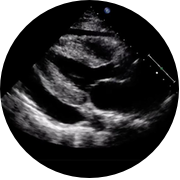In the end, they could not find any difference. POCUS doesn’t work for undifferentiated hypotension!?
So how did this study get it so wrong?
Two primary reasons.
First, their primary outcome measure was wrong. It is preposterous to expect this diagnostic test would result in a 10% reduction in mortality. But I won’t belabour this point…
Second, and much more important, they excluded patients who stood the most to benefit from ultrasound. This merits further explanation.
“… they excluded patients who stood the most to benefit from ultrasound.”
They excluded patients who were pregnant as they thought it would be unethical to miss an early diagnosis of ruptured ectopic. They also excluded patients with trauma or suspected ruptured AAA for similar reasons.
They only included only an extraordinarily selected group of non-consecutive patients. Only 273 patients were enrolled from 6 ED’s over 4 years! That’s just over one patient per month per ED. Obviously most patients with hypotension were not included.
Even in “undifferentiated hypotension” there are still varying degrees of working diagnosis and clinical suspicion.
If I was a doctor considering enrolling a patient with undifferentiated hypotension in this study, would I be comfortable if my working diagnosis included patients at risk for pericardial tamponade, tension pneumothorax, or massive pulmonary embolism? Would I enrol them if I really wanted a good look at their lungs or IVC?
Put simply; would I enrol them if I really thought the early ultrasound was needed?
Of course not.
One only needs to look at their recruitment to see this ring true. About half had sepsis. Only about 4% had a diagnosis where early ultrasound could have had made a substantial benefit.
To say that I am annoyed by this study is an understatement. It is misleading and may result in substantial harm when it is bound to be misinterpreted. This study is hocus pocus!
I believe early POCUS for undifferentiated hypotension has face validity. It is one of the first things I do as it narrows the differential diagnosis and potentially guides treatment. It is quick and non-invasive. On occasion, it picks up a “can’t miss” diagnosis and saves lives. Misleading studies are not going to change this.
Covering: Atkinson PR, Milne J, Diegelmann L, et al. Does Point-of-Care Ultrasound Improve Clinical Outcomes in Emergency Department Patients with Undifferentiated Hypotension? An International Randomized Controlled Trial From the SHoC-ED Investigators. Ann Emerg Med 2018;72:478-489. [link to abstract]
| Dr Brian Doyle is an emergency physician originally from the United States but now very much calls Tasmania his home. Unfortunately, it will now be a bit more difficult to deport him from the country as he passed his Australian citizenship test a few years ago. (He was able to answer that Phar Lap won the Melbourne rather than the Davis Cup). His main interests are mostly the clinical aspects of emergency medicine but also in education, ultrasound and critical appraisal of the literature. He spends much of his time annoying people to help out with conferences. |



 RSS Feed
RSS Feed
